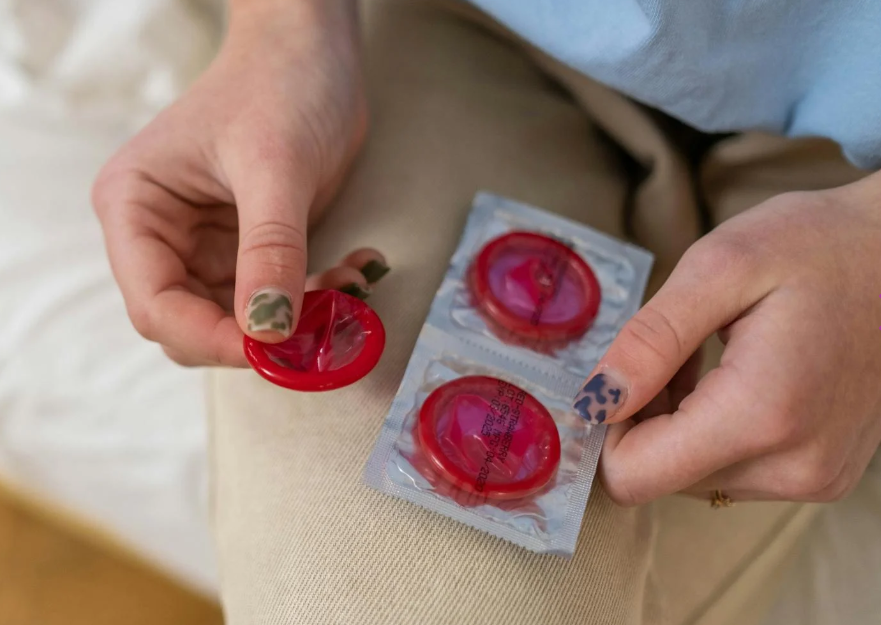No products in the cart.
No products in the cart.
Birth control plays a big role in shaping women’s health, but it can also influence sexual desire in surprising ways. If you’ve ever wondered why your libido feels a little different after starting contraception, you’re not alone. Hormonal changes can impact how we experience attraction, arousal, and intimacy—and it’s worth understanding how these shifts might connect to your birth control method. Making confident, informed choices about your health starts with knowing what’s going on with your body. Let’s break it down.
Sexual desire is a natural part of human biology, but it’s also deeply personal and highly complex. It’s not just about physical attraction—it’s influenced by a mix of hormones, emotions, and relationships. Understanding what drives your libido can help you feel more in tune with yourself and your partner, leading to healthier and happier intimacy.
Sexual desire doesn’t exist in a vacuum. A variety of factors can either spark or dampen this important aspect of life. Here are three key areas that commonly influence libido:
Each of these factors interacts, making desire a dynamic aspect of life that can vary from day to day. If you’d like to explore more about the physical, psychological, and social dimensions of libido, this guide from Baptist Health offers excellent insights.
Hormones are like the secret controllers of your libido. Testosterone, often called the “desire hormone,” plays a major role for everyone—not just men. Even small fluctuations can impact how often you feel “in the mood.”
Estrogen is another key player, especially for women. It helps regulate vaginal health and blood flow, enhancing physical pleasure and readiness. Yet, changes in estrogen—common with birth control—can also lower libido for some. Think of it this way: hormones can act like a volume dial, either turning up or quieting your desire.
Progesterone, too, isn’t shy about joining the mix. High levels, such as those caused by pregnancy or certain hormonal contraceptives, can reduce sexual interest. If you’re curious about how your specific hormone levels tie into your libido, this article from the Cleveland Clinic breaks it down clearly and concisely.
By better understanding these hormonal effects, you can make more empowered choices around contraception and intimacy.
This awareness isn’t just about science—it’s about owning what feels right for you.

When it comes to birth control, there’s no one-size-fits-all solution. Each method interacts with your body in unique ways, especially when it comes to your sexual desire. Understanding how different contraceptive types impact libido can empower you to make choices that align with your lifestyle and preferences. Let’s break down the effects of hormonal, barrier, and non-hormonal contraceptive methods on sexual desire.
Hormonal contraceptives—like the pill, patch, or hormonal IUD—are some of the most commonly used methods. These options work by adjusting hormone levels to prevent pregnancy, and the changes can ripple out, influencing sexual desire in different ways.
Still, not everyone experiences a dip in sexual desire. Some women report improved intimacy since they no longer worry about unplanned pregnancy. This detailed article by Hello Clue offers more insights into how hormonal contraceptives affect desire.
Barrier methods such as condoms, diaphragms, and cervical caps physically block sperm from reaching the egg. They don’t alter your hormones, but they can still have an impact—sometimes for better, and sometimes for worse.
Barrier methods are straightforward, but their influence on sexual desire often depends on personal experiences and preferences.

Non-hormonal birth control methods, such as the copper IUD, natural family planning, or spermicide, avoid interfering with your body’s natural hormonal balance. This can have unique effects on sexual desire.
Ultimately, non-hormonal methods allow you to maintain your body’s natural rhythms, which can positively or negatively affect sexual desire depending on your circumstances. For a deeper dive into these options, check out WebMD’s list of non-hormonal methods.
Each method comes with its own pros and cons, making it clear that birth control decisions aren’t just about effectiveness—they’re about finding what fits you emotionally, physically, and sexually.
Sexual desire naturally ebbs and flows, and birth control is one factor that can trigger noticeable changes. Let’s explore what research reveals about the connection between hormonal contraceptives and fluctuating libido.
Hormonal contraceptives, like birth control pills or hormonal IUDs, are commonly linked to shifts in sexual desire. But what does the science really say? Research shows a significant number of women experience a decline in libido while on hormonal birth control.
For instance, a 2020 study published in BMC Women’s Health highlighted that oral contraceptives often suppress testosterone levels, a key hormone driving sexual desire. This hormonal change can lead to reduced arousal and interest for some women.
Similarly, the Effects of Hormonal Contraceptives on Female Sexuality study found evidence linking oral contraceptives with alterations in sexual satisfaction and natural arousal patterns. Lower testosterone can act like a “mute” button for libido, making some women feel disconnected from their usual sexual spark.
It’s not just about biology, though. Hormonal shifts induced by these contraceptives can also impact mood and emotional attraction, compounding the effect on sexual desire overall.
Here’s the tricky part: not everyone experiences the same effects. Just like coffee doesn’t give everyone the same buzz, hormonal contraceptives don’t affect each person equally when it comes to sexual desire.
A large-scale review from the Collabra journal indicates that while hormonal contraceptives are associated with decreased libido in some users, others report no noticeable change—or even an improvement. Some women find that reducing the stress of an unplanned pregnancy boosts their confidence and sexual satisfaction.
How can this variation happen? Genetics, baseline hormone levels, and even personal relationships play a role. It’s your own hormonal mix and life circumstances working together that determine how you feel.
If you’re experiencing negative effects, consider consulting your healthcare provider. Switching to a different contraceptive method might better align with your body’s natural rhythm.
For women who’ve discontinued hormonal birth control, the effects on libido can be striking. Studies consistently show that stopping hormonal methods may lead to a sharp rise in sexual desire.
The Natural Cycles Research Library highlights that many women report more noticeable increases in their libido within the first three cycles after quitting hormonal birth control. This often coincides with the return of natural hormone regulation.
Similarly, a guide from Healthline explains that testosterone production can resume, restoring your body’s hormonal balance and boosting sexual desire over time. Hormones, much like the weather, return to their own patterns of stability once external influences are removed.
For anyone considering going hormone-free, it’s important to weigh the pros and cons carefully. Increased sexual desire can be a strong motivator, but balancing that against contraceptive needs is key.
Understanding these shifts can help you move forward confidently with your birth control decisions, ensuring that your method aligns with your body’s needs and your lifestyle goals.
Experiencing changes in your sexual desire due to birth control can be confusing and frustrating—but you’re not alone. Many women face similar challenges, and there are practical ways to address them. From honest conversations to exploring new options, there’s always a path forward. Let’s dig into some actionable strategies to help you take charge.
Having an open conversation with your partner about changes in libido is essential. It’s normal to feel awkward bringing it up, but clear communication can strengthen your connection and improve intimacy.
Open dialogue creates a space for understanding and collaboration. It’s about working together instead of facing this challenge solo. Plus, understanding each other’s expectations can prevent misunderstandings. Want more tips? This resource from BCM’s Center for Research on Women offers helpful advice on discussing intimacy.
If birth control is impacting your sexual desire, consulting a healthcare provider should be your next step. Medical professionals can help identify solutions tailored specifically to your needs.
Remember, there’s no one-size-fits-all solution with birth control. Professional advice ensures your concerns are addressed holistically.
Sometimes, switching to a different birth control method or incorporating lifestyle changes can significantly improve your sexual desire. The key is remaining open to experimentation until you find what works best.
Consider these options:
For a comprehensive guide, Medical News Today covers non-hormonal alternatives with practical insights. Lifestyle adjustments like reducing stress, exercising regularly, and maintaining a healthy diet can also play a significant role.
Changes in birth control affect everyone differently, but by staying proactive and informed, you can find what helps you feel your best—body and mind.
Understanding how birth control affects sexual desire empowers you to make thoughtful choices about your body and relationships. Every woman’s experience is unique, and there’s no one-size-fits-all solution.
Stay curious, informed, and open to consulting healthcare professionals when needed. Whether it’s exploring new contraceptive options or simply discussing changes with your partner, there’s always a way forward.
Your sexual health is personal, and your decisions should reflect what works best for you—not just what’s convenient. What matters most is finding a balance that supports your overall well-being and confidence.
If you need any further information or assistance with this article, don’t hesitate to Contact Us
Karen Blake
BAHN-NLP
TFT-DX



